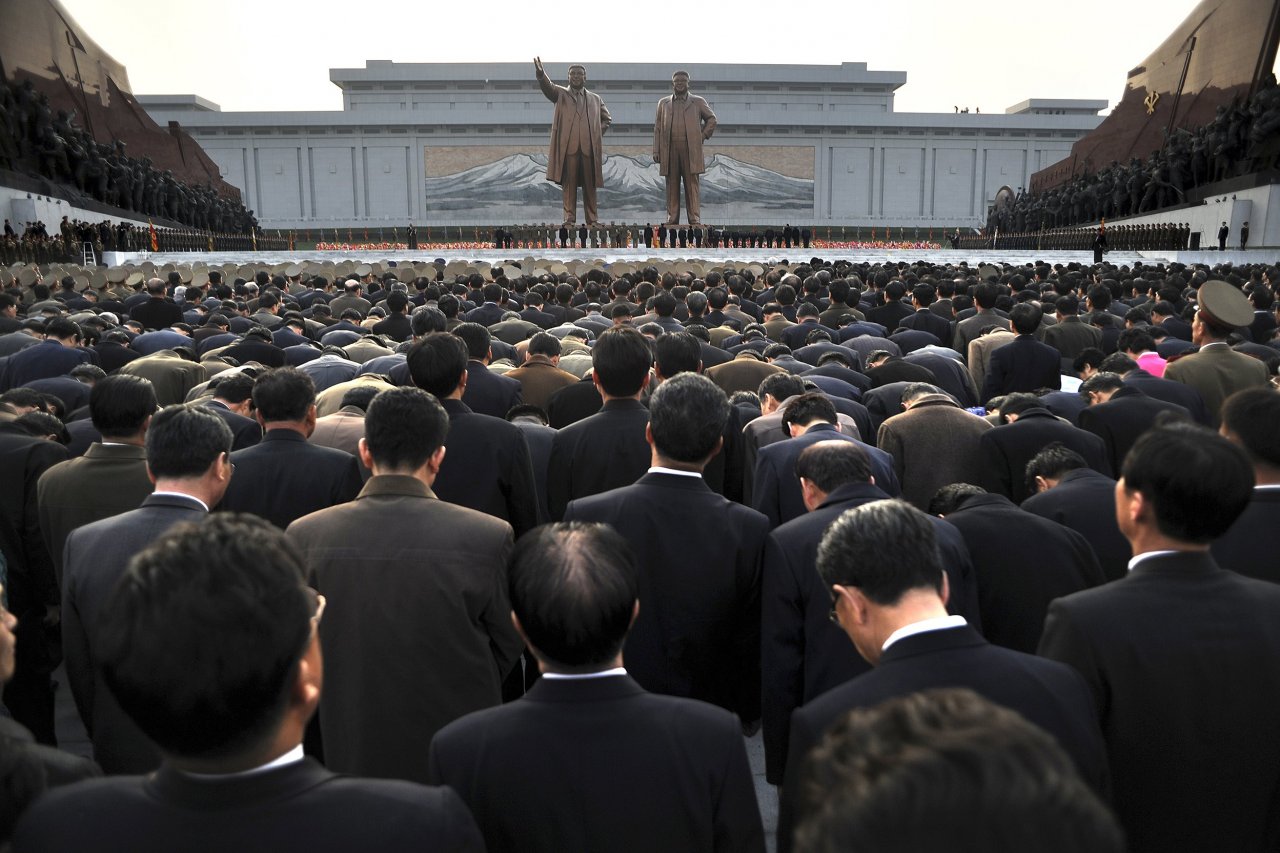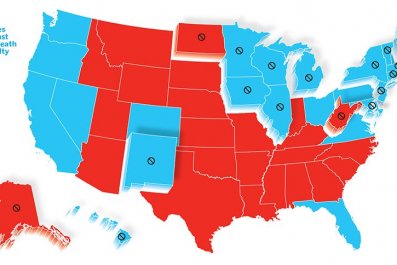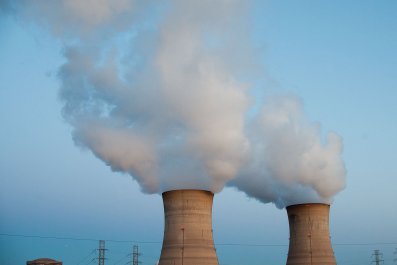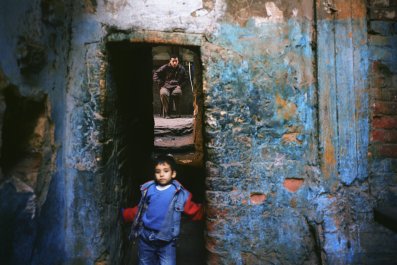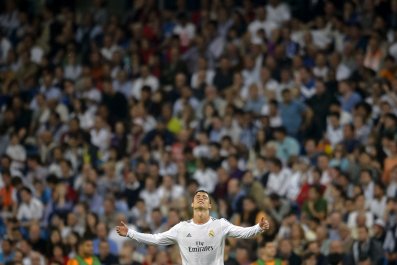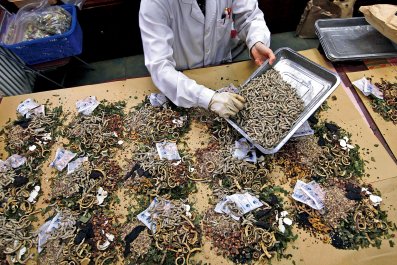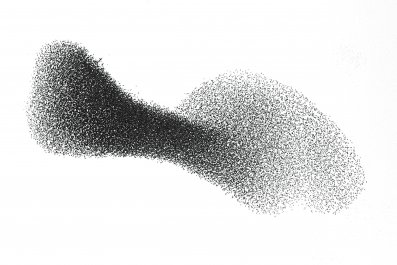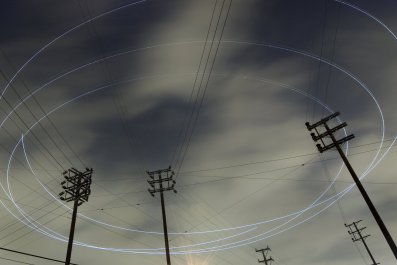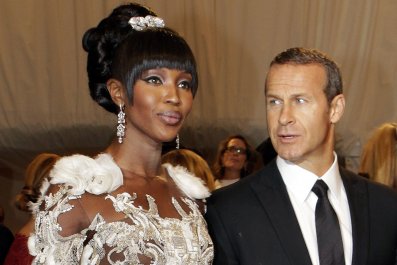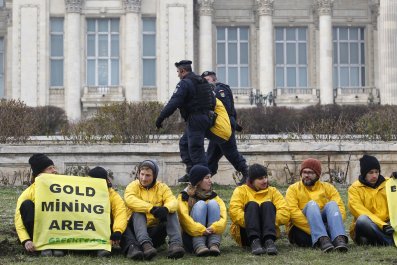Kim Jong Un is trying Beijing's patience.
While the increasingly volatile Kim tightens his grip in North Korea, doubts are arising in the region over whether China, the one country that has some sway over Pyongyang, can maintain its influence over the world's most dangerous regime for much longer.
Months after Kim executed Jang Song Thaek, his uncle, the purges at the top of Pyongyang's power structure seem to be intensifying, accompanied by a sharpening of the rhetoric. While North Korea threatens to test a new nuclear device—the fourth such provocation of its neighbors since 2006—China can barely hide its displeasure.
According to some reports from the region, Beijing's military is even making contingency plans for when Kim's regime collapses.
"China still has the most influence over North Korea in many ways, especially economic influence," the South Korean foreign minister, Yun Byung-se, told me recently. Beijing, he noted, "provides most of the energy and food" to the North.
Nevertheless, he added, Pyongyang sees itself as a "very independent nation." The North Koreans are "very proud. They don't like big powers. That means even big countries like China or Russia feel some limits to impose their views on North Korea."
Addressing the New York-based International Peace Institute last week, Yun highlighted Seoul's long-sought goal of Korean unification. Although "changing the two nameplates at the United Nations into one" would be much more difficult than the three-decade unification of the two Germanys, he said, it remains the best solution for the peninsula.
He told me afterward that the new South Korean government of President Park Geun-hye is promoting reunification more than its predecessors, which concentrated more on trying to reach an understanding with the North.
Yun came to New York to personally chair a Seoul-initiated United Nations meeting on the dangers of weapons of mass destruction being acquired by terrorist groups. Speaking in his role as Security Council rotating president in May, Yun dedicated much of his address to the menace that North Korea's missiles and its nuclear ambitions pose to the region and the world.
Then he warned North Korea of "serious consequences" if it conducts a fourth nuclear test, as has been widely predicted for weeks.
However, soon afterward North Korea's deputy U.N. ambassador, Ri Tong Il, took the floor and rambled on for 15 minutes, denouncing the evils of South Korea, Japan and the United States. Then, for the first time, he warned that "missile launches and nuclear tests, in the interest of self-defense, will become [an] annual [event]."
Ri's microphone was later cut off by the presiding South Korean diplomat, who noted that Ri had far exceeded the allotted four-minute time slot for non-council members.
In a sign of exasperation at such bellicose shenanigans by its client North Korean regime, China has recently toughened the tone of its own statements about nuclear testing. In the past, Beijing has allowed three Security Council resolutions demanding the North dismantle its nuclear program in a "complete, verifiable and irreversible manner" to pass.
But even as the Security Council conducted its meeting in New York last week, officials in Beijing were busy shooting down a report by Japan's widely respected Kyodo News that China is preparing contingency plans to come to the aid of North Korea in the event of the Kim regime's collapse.
According to Kyodo, which said it based its reporting on leaked documents from China's People's Liberation Army, China started to draw up these doomsday plans last summer. They include beefing up China's military presence at the border between the two countries, with PLA troops and reconnaissance teams to monitor any sign of a refugee influx from "our country's northeastern neighbor," as the report referred to North Korea without mentioning it by name.
The plan would also establish refugee camps along the border to house 1,500 people each. While China's PLA would provide protection for Pyongyang's top officials it would keep a keen eye on their activities at the same time.
After the Kyodo report reverberated throughout the region, a Beijing foreign ministry representative denounced it as "groundless" and full of "wild guesses" derived from "ulterior motives." To allay fears, the official added, "We hope the Korean Peninsula maintains stability, and hope that [North Korea] achieves economic development and the happiness of its people."
That official Chinese denial aside, many in the region saw the Kyodo report as yet another sign of a growing chill between China and North Korea. One diplomat even suggested to me that as China cools toward the Pyongyang regime, Kim may seek help from Russian President Vladimir Putin instead.
Moscow's parliament, the Duma, recently approved a write-off of most of the $10 billion debt owed by North Korea to Russia, which had accrued since the 1980s. Russian officials have also recently visited Pyongyang to advance plans for a natural gas pipeline from Russia through North Korea to the lucrative markets of South Korea and the rest of Asia.
"North Korea has played the Russia card each time that its relations with China have cooled off," the diplomat said, adding that while China's trade with North Korea has dropped by nearly 3 percent in the second quarter of 2014, to $1.3 billion, it still accounts for nearly 90 percent of the isolated North Korean regime's foreign trade.
Yun, the Seoul foreign minister, added that even the 33-year-old Kim, who is largely seen as an even more aggressive and reclusive leader than his father and grandfather, cannot afford to completely let go of China as an ally. "This young leader is at the very early stage of his reign, so he needs this kind of support," Yun said.
By all accounts, however, the much-publicized execution of Kim's uncle last December unnerved Beijing. Until then, Jang was seen as not only a mentor to the young leader and his link to the old guard and the family tradition but also as China's main ally in Pyongyang. Jang's rapid ousting, public trial and execution raised a red flag in Beijing—a clear indication that a period of uncertainty and turmoil in North Korea lies ahead.
According to a New York-based diplomat who closely follows the inner workings of both Beijing and Pyongyang and who spoke on condition of anonymity, Kim sent a clear message to China in the aftermath of the Jang execution: "There will be no change of policy, either inside the country or in its foreign outlook." The diplomat added that, unlike in America and other democracies, China and North Korea share a system in which institutional values and collective decision making determine much more of the regimes' policies than do the individuals at the top.
Nevertheless, Kim's preparation for yet another provocative nuclear test is perhaps the best indication that China's influence over his actions has become severely limited. If anything, that influence is fast diminishing, an ominous development for North Korea's neighbors, as well as America and others in the West.



